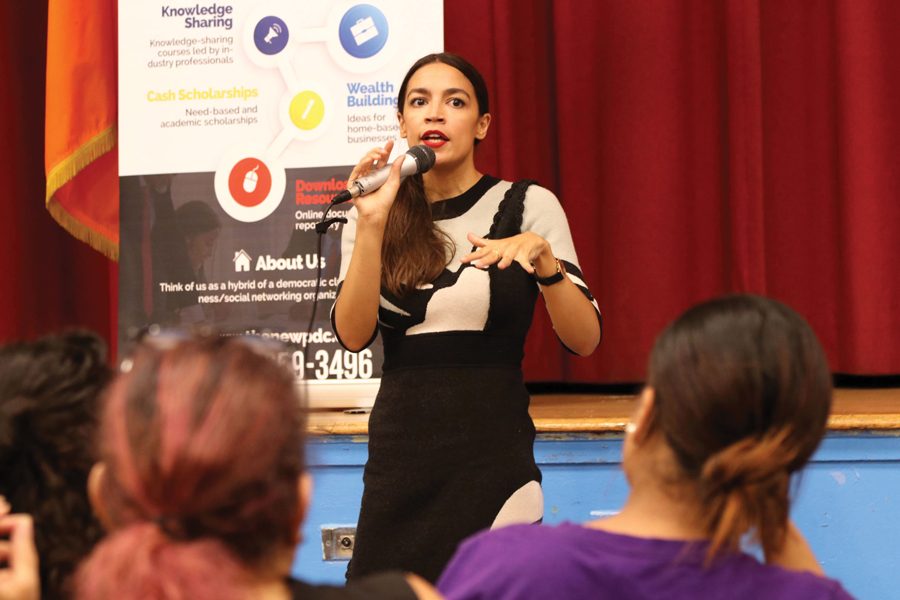Political frustrations lead students to vote for more women, minorities
Source: G. Ronald Lopez/Zuma Press/TNS
Alexandria Ocasio-Cortez takes questions from constituents. Ocasio-Cortez , and beat incumbent Joe Crowley in the primaries and is one of many women running for office this election season.
October 31, 2018
Ahead of the November midterm elections, Daily reporters are speaking to voters about issues they’ll take to the polls. In this article, students and Evanston residents take on the complexity of women in politics.
Erica Washington is done voting for old white men.
The Communication sophomore said she voted “female first, Democrats second” because she believes women leaders will spearhead change, and that men in Congress don’t understand the challenges American women face.
“A lot of people in power don’t realize that Planned Parenthood is more than just for abortions,” she said. “There are a bunch of old white men who aren’t women so they don’t understand pregnancy, they don’t understand periods.”
Washington isn’t the only one who feels that way. The lack of women leaders in political offices has motivated many Northwestern students to vote for non-male-identifying politicians in the Nov. 6 midterm elections.
Like Washington, Weinberg junior Nila Suresh said many of the divisive issues currently up for debate pertain to women, and female leaders should be present in conversations about topics such as women’s health and abortions.
“Not having female representation in government is really problematic when we’re discussing issues that directly affect women,” Suresh said.
Communication freshman Tejav Narayanan said the allegations against Harvey Weinstein, the #MeToo movement and Trump’s comments about women and minorities have made him frustrated with the current situation in Washington. He said this has illuminated a need for women and minorities in government.
“Being a minority myself, it’s made me a lot less likely to vote for the ‘old white man’ and more likely to vote for minority candidates just because they’re a minority,” Narayanan said. “I don’t know how healthy that is, but that’s where I’m at.”
Suresh said female candidates — often stereotyped as overly emotional and incompetent — can face obstacles while campaigning.
“People choose not to vote for certain candidates because of their stereotypical conceptions of women not being able to be good leaders,” Suresh said. “That might misconstrue their voting. If it’s two men with different platforms, they may only look at the platforms, but this adds another factor into it.”
The stigma surrounding female leadership, Washington said, should be removed. She said while people often characterize female leaders as “emotional,” research demonstrates women in power often make better decisions.
In future elections, sexism will have an influential role in determining outcomes as women mobilize more and more, Washington said.
“We need to give women a chance and see what happens because honestly, it can’t really get much worse than what’s going on now,” Washington said. “The fight will continue.”
Email: [email protected]
Twitter: @cassidyw_


